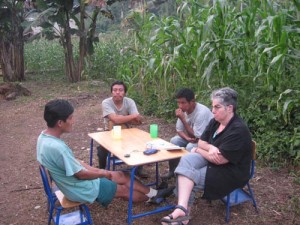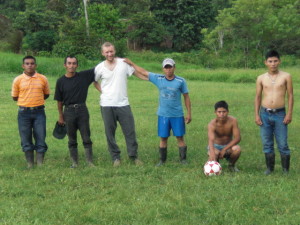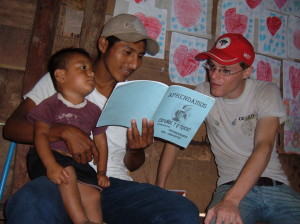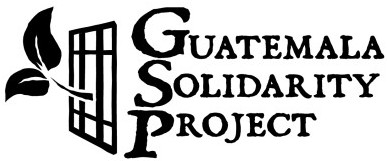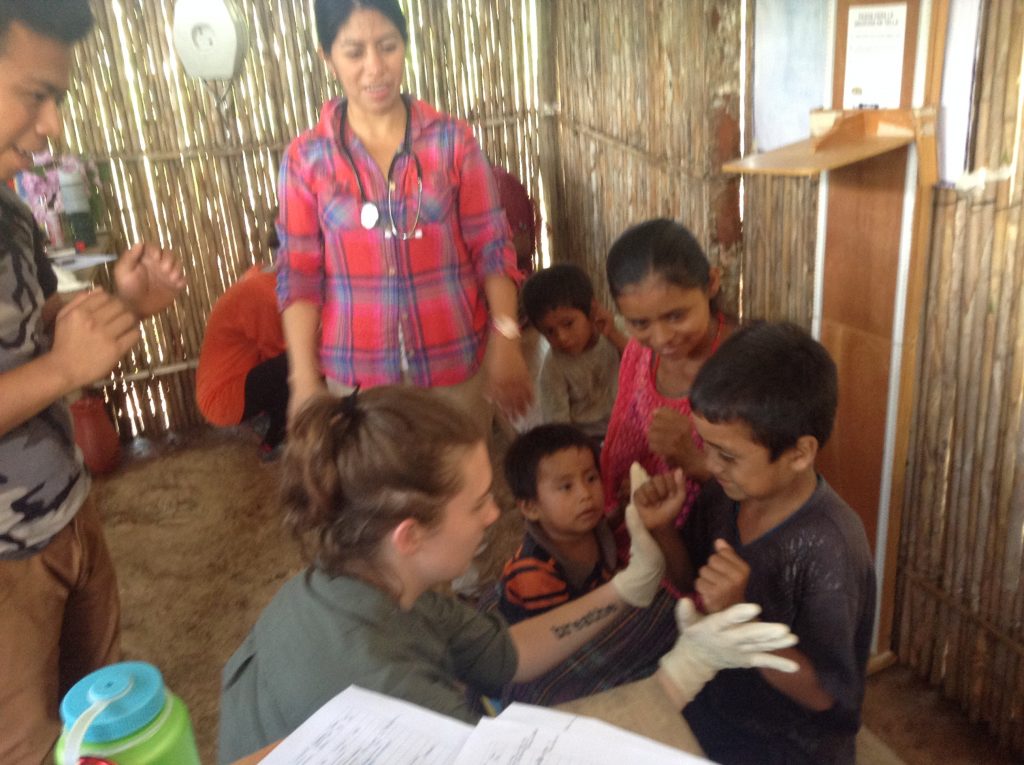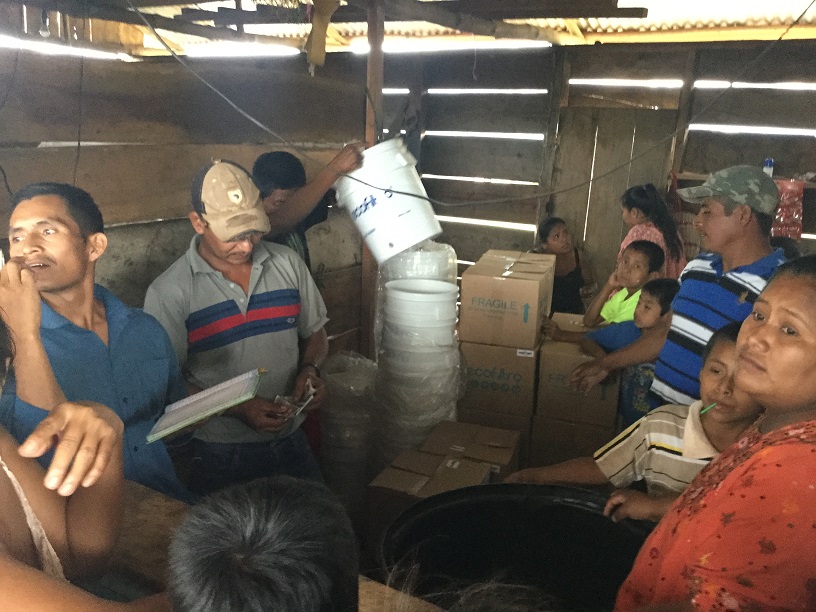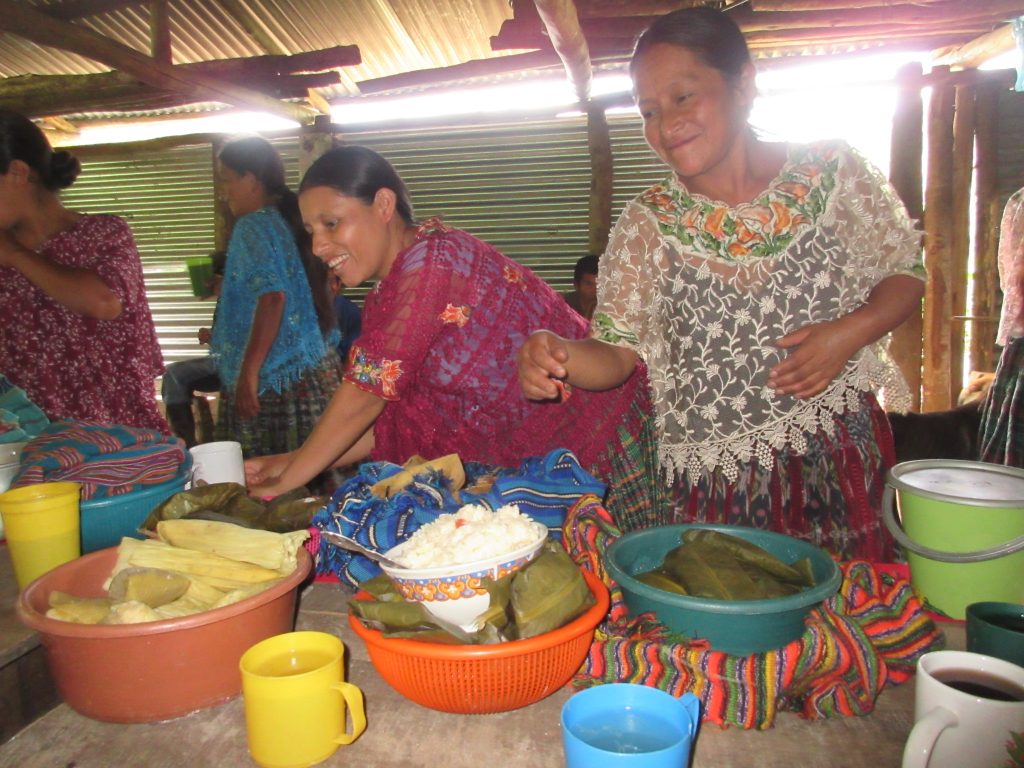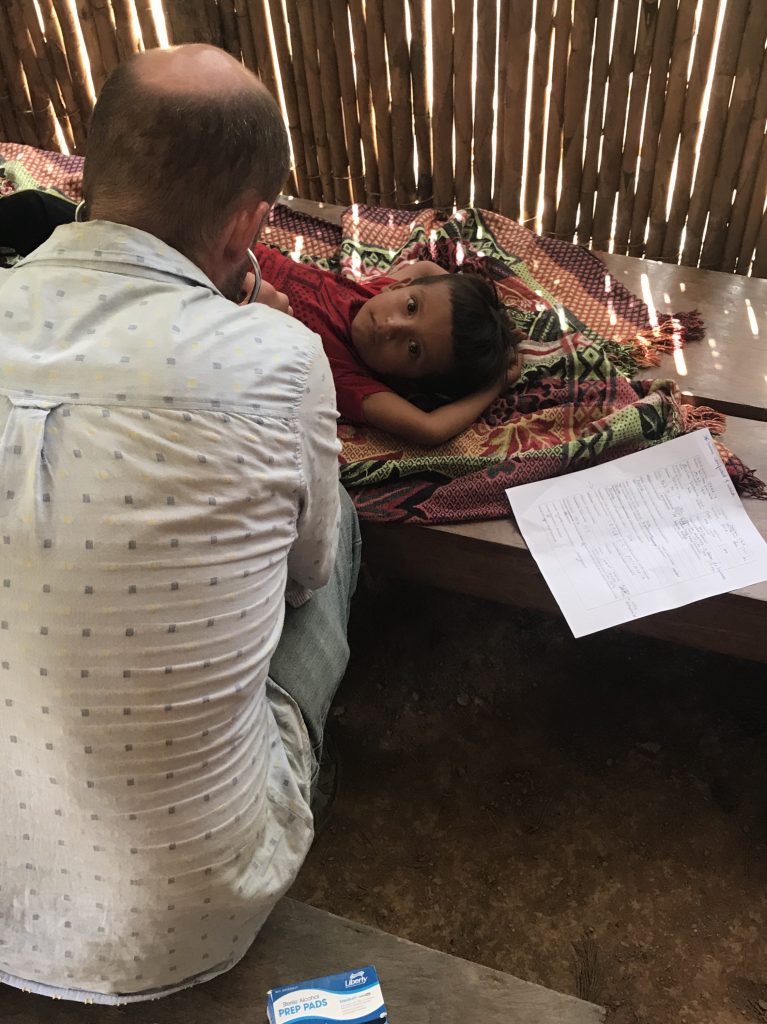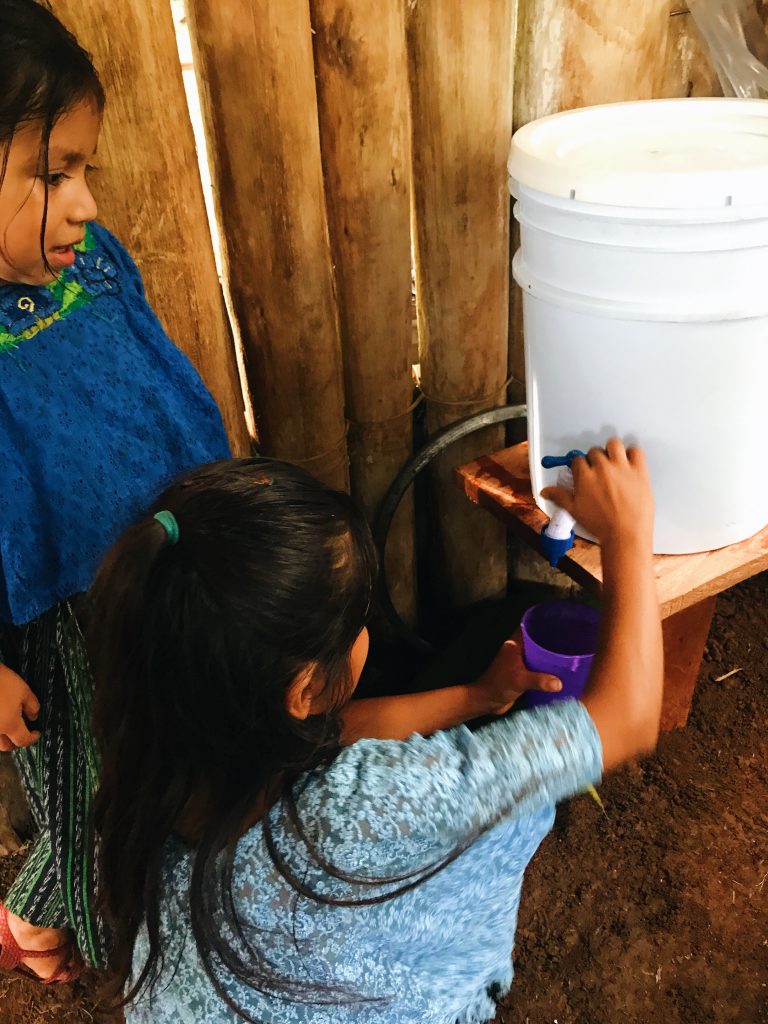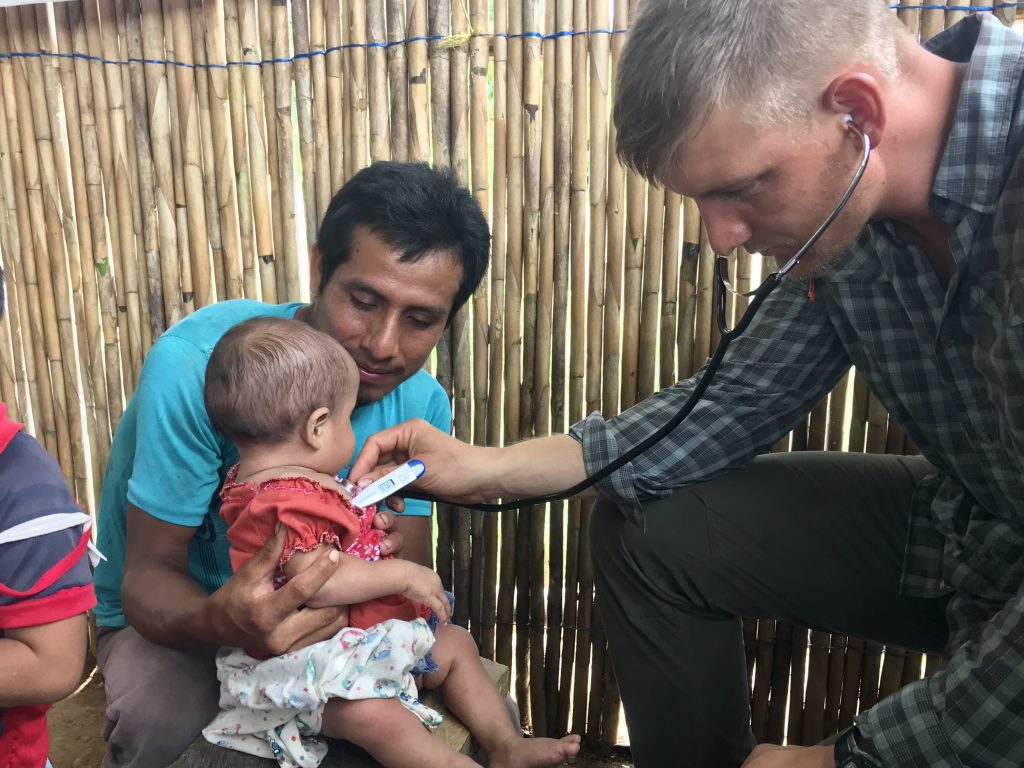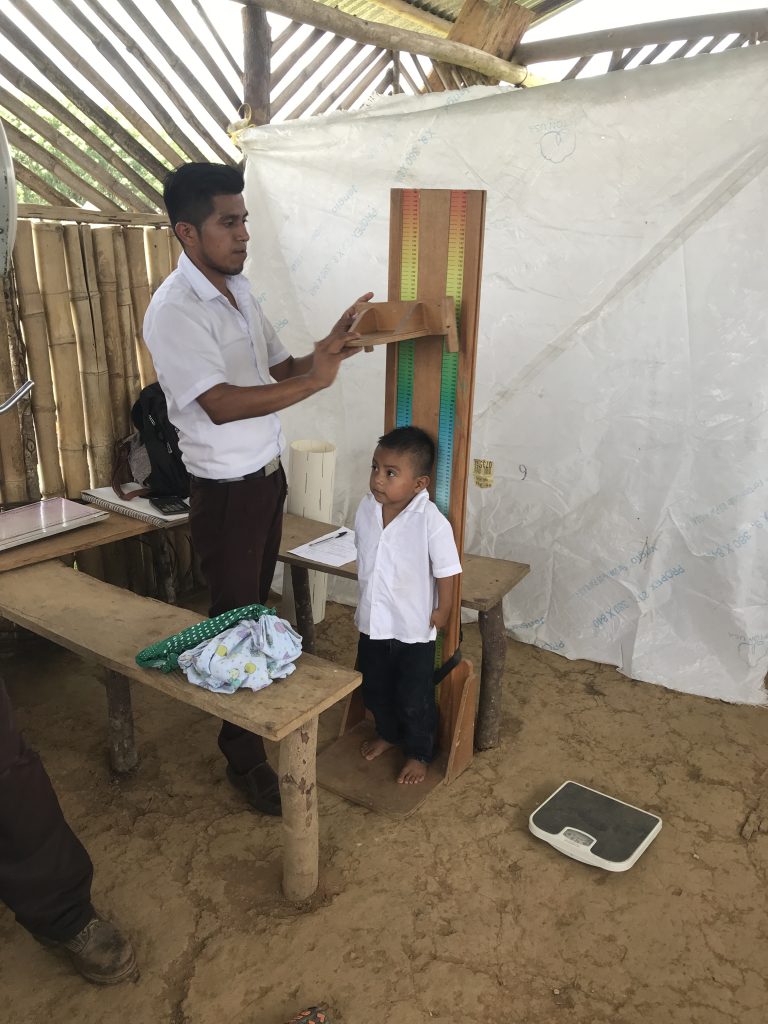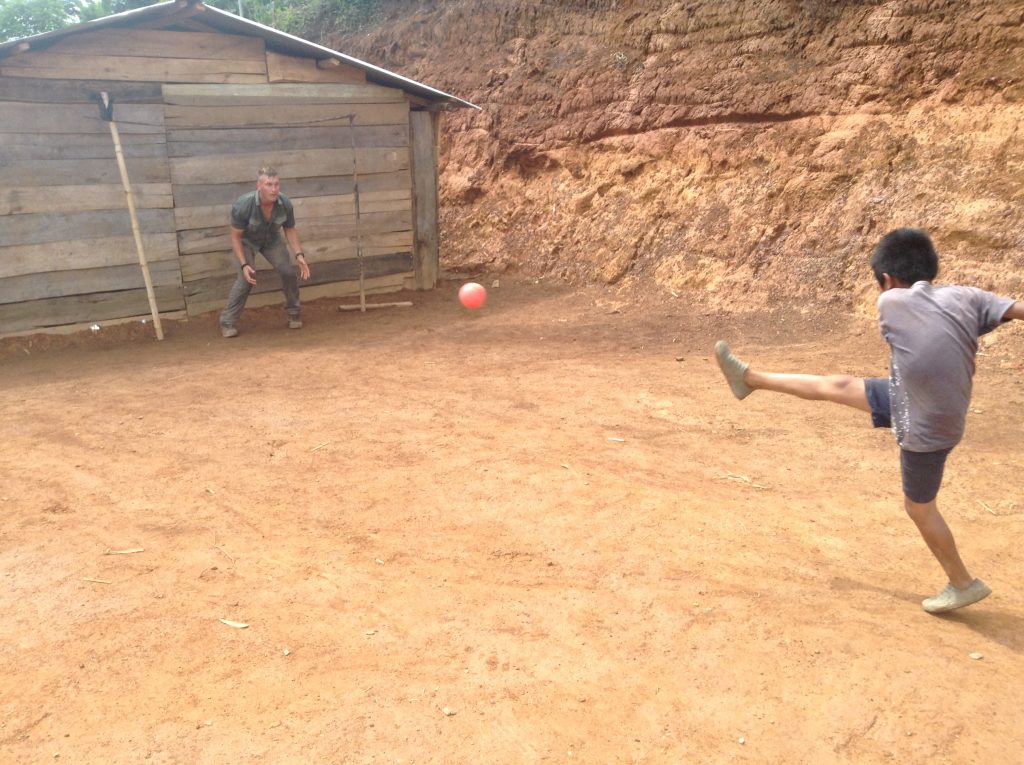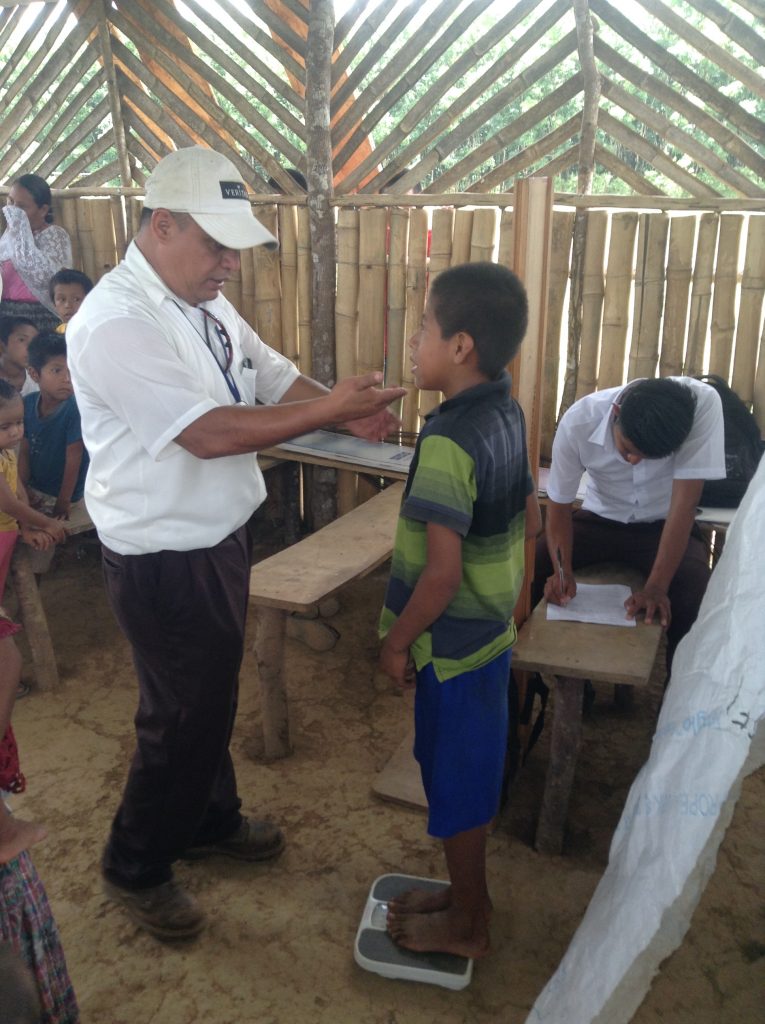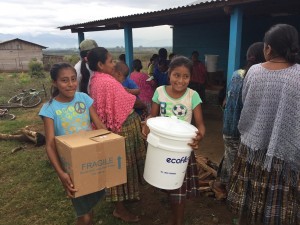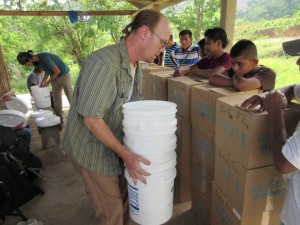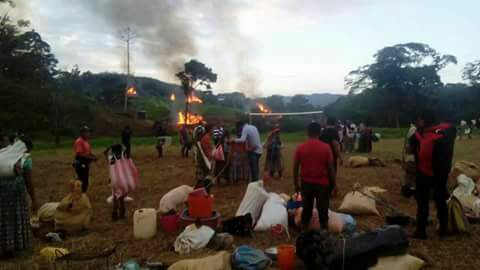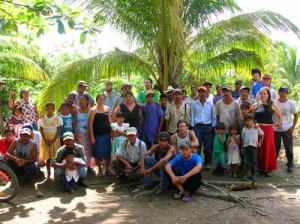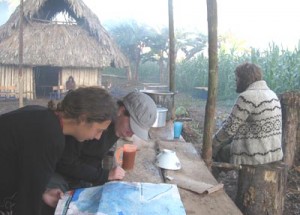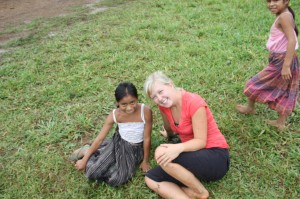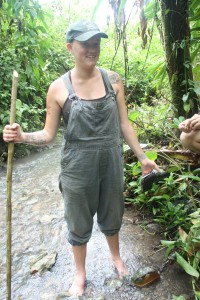Next Healthcare & Music Solidarity Delegations March 30 – April 7, 2025!
The GSP has been organizing volunteer opportunities and solidarity delegations for over 20 years. An incomplete list of recent examples includes:
April 2024 Healthcare & Music Solidarity Delegations
April 1 – April 7, 2024
April 7 – April 13, 2024
For more information or to obtain an application please contact info@guatemalasolidarityproject.org and in one paragraph let us know who you are and why you are interested. Include any questions or concerns you may have. These delegations were originally scheduled for January 2024, but due to expected conflict and limited travel options in the country during the scheduled January 2024 change of presidency we have decided to change our dates to April.
We are looking for people in solidarity, musicians, nurses, nurse practitioners, doctors, students and other healthcare workers and non-healthcare workers, journalists, video editors, photographers and others to participate in our April 2024 Healthcare & Music Solidarity Delegations in Guatemala. Musicians and healthcare professionals are needed but there are also many roles for people who do not have healthcare expertise. Click here for details on what support we need during the delegation from people who are not healthcare professionals.
We need your participation in person or via donation to work with local health leaders and achieve our goal to conduct health assessments and provide medication when appropriate for over 1,000 individuals, primarily in indigenous communities in rural Guatemala. In a recent international healthcare delegation, we performed health assessments on approximately 400 people, focusing on children under 12 years old. Over 98% of children showed signs of disease processes that were untreated. Most children had signs of multiple illnesses. Pneumonia, chronic malnutrition and parasitic infestation were some of the most common. Fewer than 1 out of every 4 children had access to school.
Many of these communities are being displaced in order to support the extraction of natural resources from indigenous land. This has provoked significant environmental degradation and health crises. We will work to directly to combat malnutrition and related illnesses and death, while joining with community leaders who are organizing to address the root causes.
Can’t join us in person? Please consider making a donation via our website our venmo @solidarityguate to help us deliver life saving support. A $500 donation will allow us to support a community nurse for an entire month. A $100 donation will allow us to deliver an emergency medical kit for an entire community. A $40 donation will allow us to set up a water filtration system for dozens of children.
For health care professionals, most of our time will be filled by providing direct care. We will also learn about land rights, indigenous rights and other structural issues causing massive health disparities in Guatemala. The majority of the delegation will take place in indigenous communities being targeted for theft of water and other natural resources. We will consider what actions we can take after the delegation to end this repression, but understand that many participants may not be able to make significant time commitments after the trip.
Nurses are needed for health assessments, medication administration and patient education. Doctors and nurse practitioners are needed for assessments, diagnoses and treatment decisions. Pharmacists are needed for medication distribution and patient education. Medical and nursing students are needed to support assessments and documentation of health data and interventions. Medical interpreters are needed to support Spanish/English, Spanish/Q’eqchi’ and Spanish/Poqomchi interpretation. During the delegation we will prioritize care for children under 12 years old and pregnant women, because these tend to be the most vulnerable populations. However there is a great need for healthcare professionals who do not specialize in these areas and we need to treat many adults during the delegation. In our partner communities children suffer significant health consequences and even death due to not being able to access common medications such as Tylenol to treat fever. These and similar health crises often can be assessed and treated by healthcare professionals who do not work in pediatrics. We will also be accompanied by local healthcare workers who are experienced in these cases and will help guide our work. Additionally we expect to see many adults, and ideally will travel with professionals with a diversity of skills and experience.
Musicians are needed to lead concerts, presentations and workshops. Our partners have prioritized musicians because they are in communities that have been abandoned or worse. Their access to music has been limited and while their greatest desire is for justice, they also want to experience and share the joy that live music can bring.
The delegation will include various working groups that we need people to fill. You can participate in more than one, such as:
Musicians working group: Organize musical performances and workshops. Determine who will perform and in what order, what songs will be played, and best ways to engage with the audience.
Healthcare assessment working group: Assess and treat 1,000+ people in the communities we visit.
Infectious disease working group: Help our group travel safely while not obtaining or spreading infectious disease.
Water filter working group: Help test water sources and set up basic water filtration efforts in communities we visit.
Physical prep working group: Help prepare the physical spaces where we will provide medical care, perform music, and sleep during our visits.
Documentation & communications working group: Help prepare social media posts, press releases, articles and other communications documenting the conditions our partner communities are in, the repression they face, and the activities of the delegation.
Food working group: Help ensure participants are eating and drinking delicious nutritious food in a responsible manner.
Waste limitation and control working group: Help the delegation prevent contaminating communities with trash, medical and other waste.
Women’s participation group: Indigenous women are particularly marginalized, and many have formed committees at the local level to organize for justice.
Education working group: Assess and collaborate with local leaders regarding access to education in communities that have been denied formal educational opportunities.
Solar power working group: Explore the realities and possibilities of solar power in communities that are violently displaced for energy “development projects” but have no or limited access to electricity.
Interpretation and translation working group: Help facilitate communication between English, Spanish, Q’eqchi’, Poqom and other indigenous languages.
March, 2011 “eviction” of indigenous communities. Government attacks on indigenous communities to steal indigenous territory and natural resources are common, but rarely caught on camera
The purpose of the delegation is to continue our work in solidarity with indigenous and peasant communities who are organizing to rescue and recuperate Mother Earth and their ancestral land rights in Guatemala. As a result of repression and land theft these communities are facing extreme hunger and lack access to clean water, leading to widespread chronic malnutrition and other negative health consequences. Mental health consequences of genocide, forced displacement, imprisonment of community leaders, arson attacks and other forms of repression have also been significant.
There are two separate delegations currently scheduled; one from April 1-7 and one from April 7-13. Participants can join either or both delegations. The majority of each delegation will take place in rural indigenous communities. Delegation participants should arrive in Guatemala City one day prior to the delegation start date and plan to not leave Guatemala City until one day after the end of the delegation, because we will leave Guatemala City the morning of the first day and will not return until the afternoon of the last day. We greatly prefer that participants join the entire duration of the delegation. We will consider making special arrangements for those who are unable to do so, but given the lack of transportation in the areas we will be visiting this may be a challenge. The April 1-7 delegation will include significant hikes in steep, frequently slippery jungle terrain. Participants will likely need to sleep on hard surfaces. The April 7-13 delegation will not include significant hikes and participants will be able to sleep in their own bed in a private room if requested.
Distribution of water filters
Goals of this delegation include conducting health assessments and providing medication when appropriate for over 1,000 individuals; supporting solar power in rural health clinics and communities; supporting the delivery of water filters; and supporting the land and human rights work of our partners. During the delegation we will also form an action plan with concrete steps to continue to work in solidarity with our partners after the delegation ends. We understand that participants have their own previous commitments, bills, jobs, families, etc. Some participants may do as little as write a letter after the delegation while others may spend months or years in Guatemala. Actions may include collecting medical donations for our partners; publishing articles and videos; organizing informational presentations in Guatemala, the US and other countries; participating in fundraising efforts in support of the communities we visit; participating in civil disobedience; lobbying US Congress against military support to Guatemala; collecting petitions; pressuring multinational banks such as the Inter-American Development Bank to stop funding theft of indigenous lands; assisting with translation; assisting with research; and other solidarity actions.
Cost of participation: $500 – $2,000, based on your ability to pay. A limited number of scholarships are available for people who can not pay the full price but can contribute in other ways. Contact us at info@guatemalasolidarityproject.org for more information on scholarships. The cost includes all food, in-country transportation and lodging (all of which will be very basic!) from our starting point near Guatemala City. Airfare is not included in this price – you must arrange and pay for transportation to and from Guatemala on your own. Translation between English, Spanish and several Mayan languages will be provided. If there are extra funds left over from the delegation they will be used to support the health priorities of our partners. We are a volunteer-run organization and no individual will make money from this delegation.
Food: Expect to eat a lot of tortillas and beans! We will share meals with our partners whenever possible. There will also be many opportunities to eat other vegetables and numerous tropical fruits. Meat will occasionally be offered, and we will have options for vegetarians.
Lodging: Lodging accommodations will include shared rooms in hotels as well as hostels run by our partners. Most nights we will likely be sleeping on hard surfaces in partner communities where there are no beds available. We suggest you bring a sleeping bag, mat and a mosquito net. We can provide mosquito nets for a very reasonable fee. If you are unable to sleep on hard surfaces or prefer a more comfortable trip and are able to pay the full participation price, we can arrange for an air mattress for you each night we stay in a community.
For more information or to obtain an application please contact info@guatemalasolidarityproject.org and in one paragraph let us know who you are and why you are interested. Include any questions or concerns you may have.
January 2023 Music & Healthcare Solidarity Delegations
January 10-16, January 16-22 andJanuary 22-27
Healthcare Solidarity Delegation
August 27 to September 2, 2022
From August 27 – September 2 the GSP led a health care solidarity delegation in which we treated over 500 individuals in partner communities. Malnutrition, parasites and bacterial infections were common. Although many of these communities are located near “development projects” receiving millions of dollars of investment, there was no perceptible investment in treating the health needs of local communities.
The Biden administration supports “development projects” with the justification that they provide jobs and opportunities for local populations. We found that the opposite is true. Communities face frequent violence in order to displace them to make more room for resource extraction projects, principally mining operations, hydroelectric dams and African Palm plantations. These projects cause devastating harm to local ecosystems and separate farmers from their land while providing only a handful of local jobs. The production from these projects, such as electricity and biofuel, is exported while local communities do not have electricity, clean water or healthcare.
During the delegation we repeatedly heard from families about the psychological anguish and anxiety they live with from the daily threat of US-backed violence. Nearly all of the communities we visited had faced violent attacks led by the US-trained and equipped Guatemalan police and military. Hundreds of community leaders in the communities we visited have arrest warrants against them in retaliation for their nonviolent organizing. The arrest warrants have a devastating impact, preventing leaders from essential activities like going to the market to sell or purchase goods, attending court hearings regarding the legal ownership of their land, traveling to the department of education to advocate for access to education for their children as guaranteed by Guatemalan law, and related activities necessary for the health and advancement of families and communities.
Many individuals expressed their grief from seeing community members and loved ones murdered or seriously injured in attacks aimed at stealing their land. Frequently people mentioned the anxiety they feel from the constant threat of more attacks fueled by the seemingly endless greed of US-backed corporations looking to steal even more indigenous land.
We traveled with a group of Guatemalan and US health professionals, and provided water filters, antibiotics, parasite treatment, vitamins and other treatment. We encountered many children in various stages of malnutrition and provided medical support and treatment. In some cases this treatment was aimed at preventing them from starving to death, and often the treatment was focused on helping children escape chronic malnutrition.
Children in indigenous communities in Guatemala often die from easily treatable conditions such as pneumonia or a common cold because their bodies are weak due to underlying malnutrition. Fever and diarrhea cause death in malnourished children whose families can not access simple treatment for these conditions. We provided potentially life saving treatment for many malnourished children with illnesses. We need your donations to help our health team in Guatemala continue this essential work.
We realize that the treatments we provided were only a temporary cure, and if the US backed repression and looting of indigenous territory continues these communities will remain in desperation. However we can not stand by idly while our sisters and brothers die of hunger and easily treatable diseases, and hope you will consider standing with us in solidarity via a donation or other related action.
Water for Life, not for Profit:
Health Care Solidarity Delegation
June 23 – July 2, 2019
In June/July 2019, the Guatemala Solidarity Project organized our first solidarity delegation focused primarily on health care. We performed health assessments on nearly 400 children aged 12 and under, and found symptoms of untreated illness in over 97% of them. We will be publishing details of the health assessment results early in 2020.
An important goal of the delegation was setting up basic water filtration systems in the communities we visited. Lack of access to clean water is a major source of illness in these communities. We collaborated with out partners to set up filtration systems in seven communities.
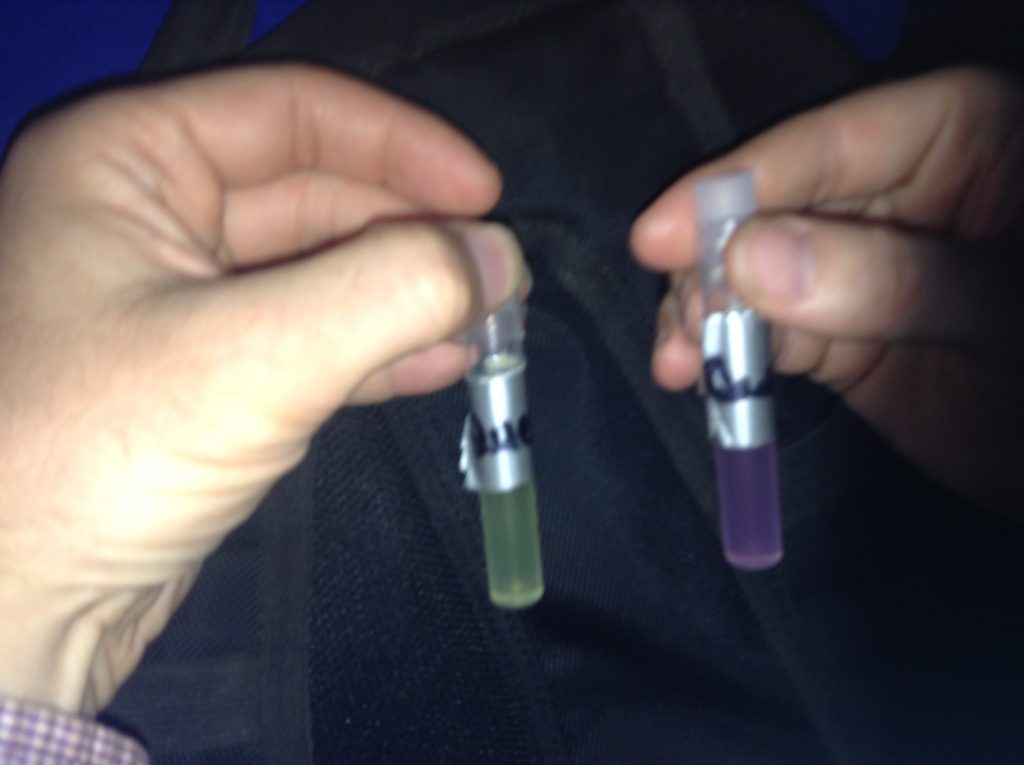
Unfiltered water tested positive for E. coli bacteria in every community we visited, but the filtered water was negative.
May 27 – June 5, 2018: Defending Mother Earth and Indigenous Rights in Guatemala
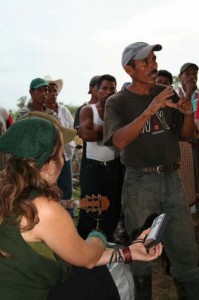
The GSP is looking for activists, organizers, teachers, students, journalists, musicians, farmers and other people of conscience to join us as we build solidarity with indigenous and peasant communities organizing to rescue and recuperate Mother Earth and their ancestral land rights in Guatemala. Most of the delegation will be spent in indigenous communities targeted by government and private businesses in attempts to steal land and natural resources. We expect to participate in long hikes, get uncomfortably sweaty and dirty, get bug bites and sleep on hard surfaces. We expect to see incredible natural beauty and swim and fall in love with a river or two. We expect to feel moments of great joy and of intense sorrow.
We will meet directly with our partners in these communities and build personal and organizational relationships in solidarity with their struggle. We will form an action plan with concrete goals that may include publishing articles and videos; organizing informational presentations in Guatemala, the US and other countries; participating in fundraising efforts in support of the communities we visit; participating in civil disobedience; lobbying US Congress against military “aid” to Guatemala; collecting petitions; pressuring multinational banks such as the Inter-American Development Bank to stop funding theft of indigenous lands; assisting with translation; assisting with research; and other solidarity actions.
We understand that participants have their own previous commitments, bills, jobs, families, etc. Some participants may do as little as write a few letters after the delegation while others may spend months or years in Guatemala. All participants will need to be with us for the entire delegation. Cost of participation is on a sliding scale based on income and includes all food, transportation and housing (all of which will be very basic!) from our starting point near Guatemala City. For more information please contact info@guatemalasolidarityproject.org and briefly let us know who you are and why you are interested.
Many of the communities we will visit were violently attacked by hundreds of police and soldiers in March, 2011. The government stated that the attack was a “nonviolent eviction” and that the military was not involved.
As a result, the vast majority of children from these communities are suffering from chronic malnutrition. Several people have died of illnesses related to starvation. After the Inter American Court of Human Rights ruled in favor of the communities, the government promised to give them land. Over six years later thousands of people remain without land or even clean drinking water.
The short term effects of malnutrition are severe and can include death. Several people have died of starvation and related illnesses since the communities were evicted in 2011. Children who survive chronic malnutrition suffer from extreme long term consequences. Weakened immune systems, stunted growth, weak bones, decreased IQ, learning disabilities, diabetes, heart disease, kidney damage, and decreased physical capacity for work as an adult are just some of the life-long effects of chronic malnutrition even for people who are eventually able to consistently access sufficient nutrients after surviving chronic malnourishment.
Water-borne illnesses are causing significant injury to members of these communities. Often the small amount of nutrients parents are able to give their children are negated by water-borne illnesses. Children and the elderly are also most vulnerable to mosquito-borne illnesses such as malaria. Families are unable to purchase water filters and mosquito nets to protect their children and elderly. The government and wealthy “land owners” continue to threaten and exploit communities, making it impossible for them to access such basic goods.
One goal of the trip will be to help facilitate the delivery of high quality water filters to communities along with workshops on their use and maintenance. We will also seek to further develop personal and institutional relationships as well as coordinate continued actions in solidarity with the communities and their struggle for territorial and cultural rights. For more information please contact info@guatemalasolidarityproject.org and briefly let us know who you are and why you are interested.
December 13-20, 2017: Solidarity with Displaced and Threatened Indigenous Communities
A wave of violent attacks against indigenous communities beginning in late October included the burningdown of entire villages and caused death, widespread illness and extreme hunger. Despite these attacks, targeted communities have remained united. The attacks have received very little internationalcoverage, and occurred in the context of systematic land grabs of indigenous territory and continued US military “support” for the Guatemalan regime. From December 12th to 19th, 2017, the GSP coordinated an intense and inspiring delegation that visited 10 sites of struggle against the destruction of Mother Earth led by brave indigenous farmers. We also met with representatives from 9 other communities in resistance in Jalapa, Alta Verapaz and Baja Verapaz. Read the delegation report here
August 12-16, 2017: Anniversary of murder of children and continuation of resistance to corporate dam mega projects in Coban
On August 23, 2013, 13 year-old Ageo Isaac Maas Guitz and 11-year-old David Estuardo Pacay Maas were murdered by an employee of Hidro Santa Rita SA. Not coincidentally, the murders occurred as community leaders were meeting with Dinah Shelton, Special Rapporteur on the Rights of Indigenous Peoples for the Inter-American Commission on Human Rights.
The murders were a part of systematic repression that continues today and has included the establishment of a military base on community property, arrests of community leaders on fraudulent charges, arson of homes, numerous armed attacks against community leaders and other forms of terrorism. The attacks are meant to intimidate area communities from participating in nonviolent organizing in defense of their territorial rights. The ultimate goal is to build a series of hydroelectric dams that would flood indigenous communities, destroy local ecosystems and create enormous profit for an already wealthy elite.
We have been invited by community leaders to join them in commemorating the lives of the children and celebrating the continuation of resistance to the looting of indigenous land. For more information please contact info@guatemalasolidarityproject.org
Indigenous Rights Versus Terrorism and Environmental Destruction, May 26 – June 4, 2017: Participants will spend most of their time in rural indigenous communities. We will visit political prisoners, community leaders who have been threatened with arrest, survivors of recent government violence and others who are organizing for justice. We will travel to and stay in communities that have been threatened with or have already suffered violent evictions. We will build personal and organizational relationships with those we meet. Transportation, basic housing, three meals a day and translation to/from English will be provided.
The central goal of the delegation is to provide participants with the tools and motivation to promote indigenous rights in Guatemala. Participants will commit to work on areas of interest to them such as publishing articles and videos; organizing informational presentations in Guatemala, the US and other countries; participating in fundraising efforts in support of the communities we visit; participating in civil disobedience; lobbying US Congress against military “aid” to Guatemala; collecting petitions; pressuring multinational banks such as the Inter-American Development Bank to stop funding theft of indigenous lands; assisting with translation; assisting with research; and other solidarity actions.
We understand that participants have their own previous commitments, bills, jobs, families, etc. Some participants may do as little as write a few letters after the delegation while others may spend months or years in Guatemala. All participants will need to be with us for the entire delegation.
Intensive Solidarity Delegation, June 25 – July 1, 2017: While this delegation will be similar in many ways, it is only open to people who fit any one or more of the following criteria: People with significant experience doing latin america solidarity work, people who have previously participated in GSP activities, people who are interested in volunteering in Guatemala with the GSP and our partners after the delegation ends, and people who are able to commit before the delegation to do specific solidarity work (such as publishing articles, raising funds to support our partners, and organizing nonviolent actions calling for justice in Guatemala). English/Spanish translation may be somewhat limited on this delegation. Our delegations always look to build individual and institutional solidarity, and together we create action plans that will help guide us to continued collaboration once the delegation is over. However this delegation will be even more focused on tasks and less focused on activities geared toward introducing and informing delegation participants. We expect to participate in long hikes, get uncomfortably sweaty and dirty, get bug bites and sleep on hard surfaces. We expect to see incredible natural beauty and swim and fall in love with a river or two. We expect to feel moments of great joy and of intense sorrow.
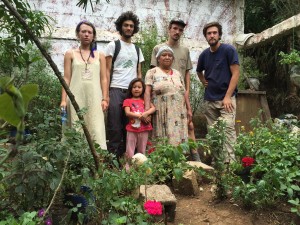
GSP Solidarity Delegation January 2017 Report Back: From January 3rd to January 11th, 2017, a group of students, organizers, farmers, and human rights activists from the United States traveled throughout rural Guatemala as part of a delegation organized by the Guatemala Solidarity Project. We traveled under the principle that solidarity is best created by building long term relationships and listening to the communities most affected by state violence and global capitalism. Three themes emerged from the stories we heard: the role of international and state violence, environmental destruction, and gender-based violence. Read complete report
GSP Solidarity Delegation June 2016 Report Back: This delegation was born out of the belief that the United States government plays an active and ongoing role in the exploitation, repression and violence directly targeted against peasants in resistance to capitalist “development”. We did not have a clear idea of what we were going to see, but our desire was to personally witness the devastating effects of U.S. foreign policy. During the months of April and May, Guatemala Solidarity Project (GSP) delegates from the United States took part in several actions in support of indigenous land and water rights. These actions included visiting communities in resistance in different regions of Guatemala as well as participating with thousands of Guatemalan farmers and activists in La Marcha Por El Agua (The March for Water). Read complete report
GSP Solidarity Delegation June 2015 Report Back: From May 25 to June 4, 2015, a group of human rights activists from the United States, England and Colombia participated in a solidarity delegation organized by the Guatemala Solidarity Project. We were horrified to see that the government and capital interests are systematically using violence and judicial persecution to steal land from indigenous communities. Their goal is to exploit the natural resources and cheap labor of Guatemala, destroying rivers and local ecosystems in the process and leaving indigenous peasants with hunger and poverty. Read complete report
